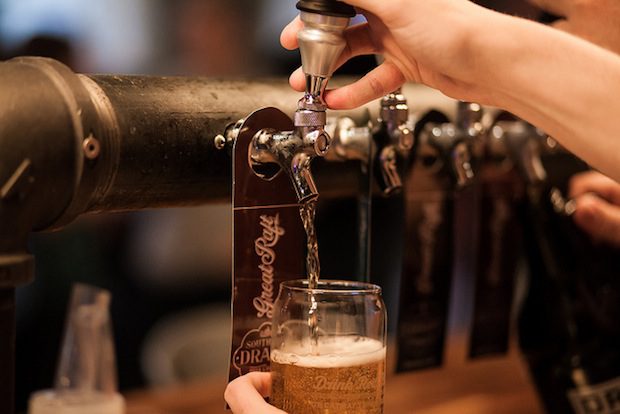Small Is Delicious

Tim Wu explores niches in our economy in which mass producers can’t compete. Why do craft brewers succeed, even though their beer is significantly more expensive than mass-produced beer? Wu:
Their beers were not better advertised and certainly not better priced. Rather, the crafts went after an enormous blind spot for the big breweries—namely, flavor. I don’t entirely mean to be snide; more precisely, craft beer succeeded by opting not to compete directly, instead pursuing what can be called a “true differentiation” strategy. That means they established a product that, in the mind of the consumer, is markedly and undeniably different (as opposed to “false differentiation,” which is more or less the same thing with different packaging). True differentiation, if it works, actually changes consumer preferences. The dedicated craft-beer drinker, once he’s hooked, no longer cares if Coors Light costs three dollars less. Today there are once again thousands of breweries in the United States (more than 3,000, in fact).
You can see the strategy of true differentiation at work in other areas of the economy as well. Farmers who sell, say, organic or free-range foods, cannot hope to compete based on price. Instead, they try to create consumers who won’t eat chicken produced by big companies for moral, health, or aesthetic reasons. As Jaime Rogers, the owner of Pushcart, a small chain of coffee shops in New York, put it to me, “We compete with Starbucks by selling to people who don’t want to go to Starbucks.” Independent bookstores (whose sales are actually rising) can’t beat Amazon on price or selection. But they can curate intensely and make the act of browsing for books an enjoyable experience that cannot be matched online. True, the differentiated product is often more expensive, but a craft beer or a fancy coffee, unlike, say, a Lamborghini, is not beyond the reach of the middle class.
On the beer thing, that’s definitely true. If the only beer available in a particular situation is Coors, Bud, or Miller, I’ll drink Coke Zero instead. It’s not a snob thing; it’s that once you’ve accustomed yourself to the taste of the real thing, the pale imitation cannot satisfy, only irritate.
Regarding bookstores, Eighth Day Books in Wichita is a perfect example of what Wu’s talking about. I can’t think of another bookstore where you go in and discover books that you didn’t know you wanted, precisely because the experience of shopping there has been so well curated by owner Warren Farha. It’s not an all-purpose bookstore, but a bookstore aimed at people who are serious about Christianity (e.g., they don’t sell masscult Christian books), literature, philosophy, and the arts. If I weren’t a Christian, I would haunt that bookstore if I lived in Wichita, because its selection of books on poetry, art, and philosophy is so rich. Aside from what you can buy there, Eighth Day offers an experience of a bookstore that you rarely find anywhere nowadays. It feels like a destination. The reason it can’t be franchised is that there’s only one Warren Farha.
I think about where we bought wine when we lived in Cobble Hill, Brooklyn: Heights Chateau. It was a neighborhood wine store where the selection was excellent, and the staff knew your tastes, and so could be helpful when you came in not knowing what you wanted. You can’t get that buying wine at Costco — and you can’t always get it from a small wine shop, if the staff is brusque. Shopping at Heights Chateau was such a pleasure that they probably ended up selling me more wine than I would otherwise have bought, simply because they knew what I liked, and when I would walk in would suggest that I try this or that bottle that I never would have discovered on my own. I learned a lot about wine from this ordinary commercial relationship, because it was, to use Wu’s word, so well-curated.
Another, more cynical way of looking at this is to say that these merchants do a much more sophisticated job of doing what all marketers do: make you want things you didn’t want before. At one level, that’s true. But here’s the difference: coming to desire things like unfamiliar books or wine is not only about satisfaction, but about learning. When I would shop at the Brooklyn wine store, I never got the feeling that they were trying to move the merch, and snooker me into buying things. It was rather a relationship in which the staff knew that I was a novice about wine, and curious to know more, and they saw it as their business to further my education, within my limited budget. What they had was a passion for wine, and they were eager to share that passion with their customers. You could treat it as a mere exchange of money for goods, and they would be fine with that. But if you wanted more, there it was, and nowhere else in the neighborhood at that time. Same deal with Eighth Day. You go there for the books, but you keep coming back for the experience of learning more about the world of ideas and the pleasure of words, provided by someone who loves them as much or more than you do.
Subscribe for as little as $5/mo to start commenting on Rod’s blog.